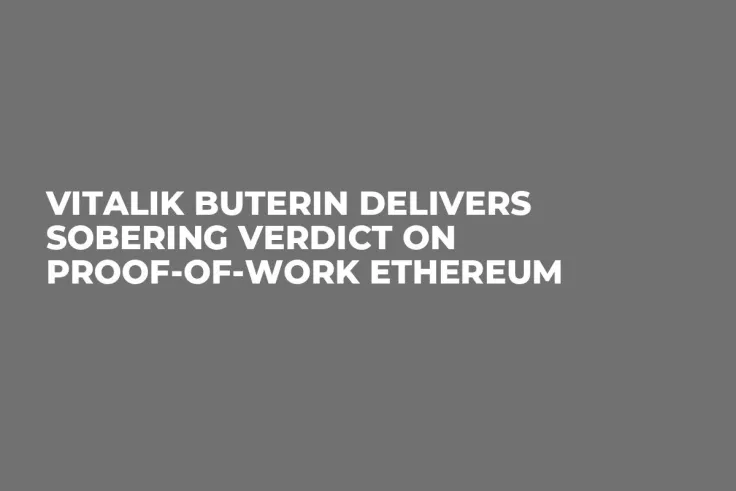Amid whispers within the Ethereum community longing for the days of proof of Work (PoW), Ethereum cofounder Vitalik Buterin has decisively put an end to the debate, asserting that PoW was not immune to centralization. With Ethereum's transition to proof of Stake (PoS), Buterin argues that the temporary nature of PoW allowed centralization to remain largely unaddressed.
Buterin backed his stance by revealing a stark reality: under PoW, a mere handful of mining pools wielded disproportionate control over Ethereum's network. A visual representation showcased that a staggering 76% of ETH mining power was concentrated among just five major pools, with Spark Pool and Ethermine emerging as the primary ones dominating the sector, collectively commanding over half of the altcoin's production.
The resurgence of debates surrounding Ethereum's switch to staking, fueled in part by ongoing legal battles, notably with the SEC, has been met with Buterin's unwavering defense. The SEC's allegations linking Ethereum's consensus mechanism to security concerns have prompted delays in the much-anticipated launch of Ethereum ETFs, casting a shadow over the cryptocurrency's regulatory landscape.
On the contrary, the contrasting fate of cryptocurrencies operating on PoW, such as Bitcoin, which have successfully navigated regulatory hurdles to secure ETF approval, alongside the inclusion of Dogecoin, Litecoin and Bitcoin Cash derivatives on leading American crypto platform Coinbase, also adds fuel to the debate.
As Ethereum continues its journey with a PoS consensus, Buterin's resolute stance serves as a definitive response to those nostalgic for the era of mining dominance. Yet, amid this transition, one lingering question persists: Was the shift from mining to staking truly a decision for the better?




 Dan Burgin
Dan Burgin Vladislav Sopov
Vladislav Sopov